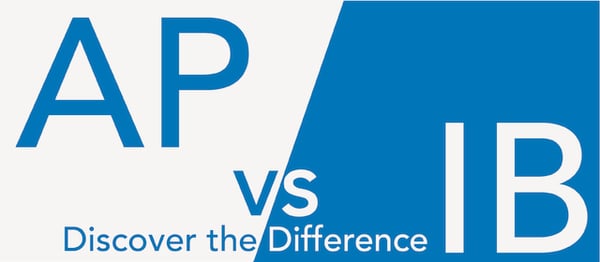The Learner Profile of an AP Student
Advanced Placements (AP) classes do more for students than just challenge them academically.
The lessons and skills learned in the AP classroom stay with students throughout their academic careers and help them develop into well-rounded learners who are prepared for any challenge.
But what exactly does it take for your children to thrive in an AP program? What characteristics do they need to embody?
Below, we explore the profile of an AP learner, and how each attribute has long-lasting, positive effects on your children and their education.
Empowered to be Lifelong Learners
AP classes are challenging, but these challenges encourage students to engage heavily in their studies and dedicate themselves to the opportunities presented to them.
These classes empower our students to eagerly embrace learning complex subject matter, to develop a passion for learning, and to carry that drive into their future, because learning is a lifelong journey.
Adaptable and Independent Thinkers
“An AP learner enjoys an academic challenge, and is not afraid to work hard,” said Monica Ghicu, AP Coordinator at Concordia Shanghai.
The challenges of AP classes force students to adapt and grow into independent, focused learners. Though difficult, AP classes give students a consequence-free and independent opportunity to adapt to an academically rigorous learning environment much like what they will face in university.
Globally Minded
Our modern workforce is increasingly globalized, and college-level courses seek to accurately represent the realities of the market their graduates will be entering into.
AP classes go beyond what is typically taught in high school and incorporate this mindset into coursework. By reflecting both the diversity of the student population and the global workforce, students are better prepared for what life will be like in post-secondary and beyond.
Academically Ethical
As college preparation courses, the AP models university standards when it comes to ethics. Students have the advantage of learning early on the academic expectations required of them in a university setting.
Imparting the importance of honesty and integrity in academia should start as early as possible, and AP classes are the perfect opportunity for students to learn these merits, as they will carry them forward throughout their careers.
Inquiry Driven
AP classes open the opportunity for students to ask questions and delve deeper into course topics. It also allows students to choose which subjects they are interested in pursuing.
By triggering curiosity, AP students find the desire to push themselves to learn more, study harder, and inevitably become more inquisitive and engaged individuals.
Motivated and Dedicated
Students who choose to take AP classes must never waver in the face of challenges.
By surrounding themselves with students who have the same motivated mindset, our students stay focused on their goals and maintain that motivation throughout their coursework and beyond.
“[AP learners] are invested in their future and are often willing to make sacrifices to achieve their academic and professional goals,” said Ghicu.
Responsible
The learner profile of an AP student includes individuals who know how to multitask, meet deadlines, and prioritize activities.
The added responsibility of AP classes requires extra care, and therefore, students quickly realize the importance of the work they put into their assignments.
Prepared and Organized
Much like a university course schedule, AP classes require students to prepare and stay organized. By imparting these skills in a pre-college setting, students already have the skills to balance their schedules in order to complete all assignments.
“They are prepared to handle high-level academic content successfully and are disciplined enough to manage their personal and social life, with the requirements and rigor of college-level demands,” said Ghicu.
Beyond Proficient in Reading and Writing
As the equivalent of entry-level college courses, AP classes require a high proficiency in reading and writing skills.
When your children take AP classes, they continually demonstrate their abilities through challenging coursework and assignments.
When it comes to choosing the most beneficial education for your children, commonly the debate is between college-level programs in a pre-university setting, with a specific debate between the IB versus AP. Of the two, which one is more beneficial to your children’s learning? Which one is better equipped to help your children get into post-secondary? Click the link below to find out more.






